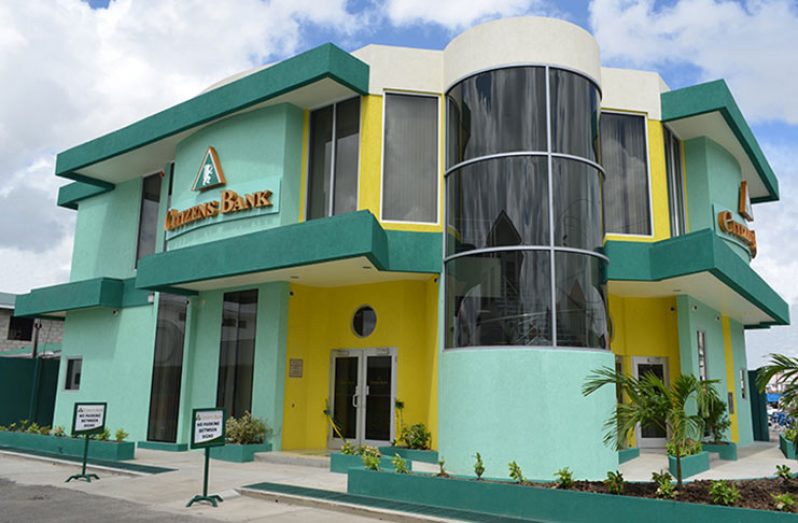GUYANESE are now forced to pay double the cost of wiring cash to the United States as the recently announced “de -risking” by American banks begin to take shape.Local institution, Citizens Bank ceased all paper transactions that involved the acceptance of American cheques and the transfer of money to that country through this system.
The bank is now engaged in wire transfers only. Questions asked about the new system during a visit to that bank revealed that to now send money from Guyana to the US via the wire transfer cost as much as US$60 to US$70 (G$ 12,000 and G$ 14,000), a massive jump from the US$25 to US$30 fee that customers once enjoyed.
The fee to receive funds has basically remained the same.
The Citizens Bank’s teller related that its beneficiary bank in relation to transfers is Crown Agents Bank Limited based in the United Kingdom. This intermediary institution is expected to facilitate the money transfers between the local bank and the US.
Citizens Bank is among the first of several local institutions that must adjust to the new US systems and are in the process of doing so. Other banks are gearing to make the change. A visit to the Demerara Bank revealed that while the institution was still facilitating paper transactions, there will be an adjustment.
The teller said she could not say when the bank will cease the particular transaction, but indicated that eventually all locally owned banks will have to adjust their systems to accommodate the US order.
Earlier this year, US-based banks declared that they were pulling their services from the Caribbean due to unrelenting pressure from US regulators. Caribbean leaders had stressed the pressure the region would endure as Citibank, J P Morgan, Bank of America and others continued to sever “correspondent bank relations”.
It was stated that Bank of America, in particular would have pulled its services from Guyana by August last, but the agency had provided breathing room by extending another three months to allow mop up by local banks.
The end of October should see the exit of the American institution. In the meantime, new international banks have proposed to pick up the slack left by the American fall-out. Bank of Guyana Governor, Dr Gobind Ganga had told the media that banks in the US, as well as in Europe were interested in replacing the American Bank.
The high-level of liquidity in the region was said to be the catalyst for the American withdrawal, as a measure against money laundering, the financing of terrorism and other financial illegalities that thrives on hard cash — ran economies like Guyana.
Many Caribbean nations are still cash-based, which makes it difficult to track financial sourcing and the movement of money. A ‘plastic-based’ or automatic financial system allows for an easier look into the networking of transactions.
While the increasing threats posed by money laundering and the financing of terrorism may be plausible – reasons to cut relations with paper-based nations, many affected countries have decried the bottleneck position they are being put into since the majority of Caribbean nations work with American banks.
Belize was said to be the hardest hit as local banks and the citizens felt the pressure of de-risking when it became harder to receive money in that country.
A World Bank report had stated that “Correspondent banking services are essential to enabling companies and individuals to transact internationally and make cross-border payments”, referring to the day-to-day financial services that banks facilitate for each other in the operationalisation of international trade and finance.



.jpg)









